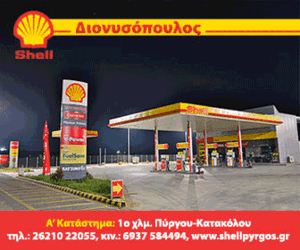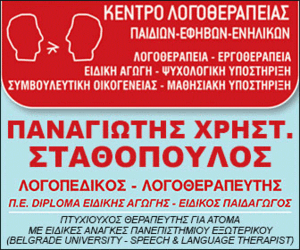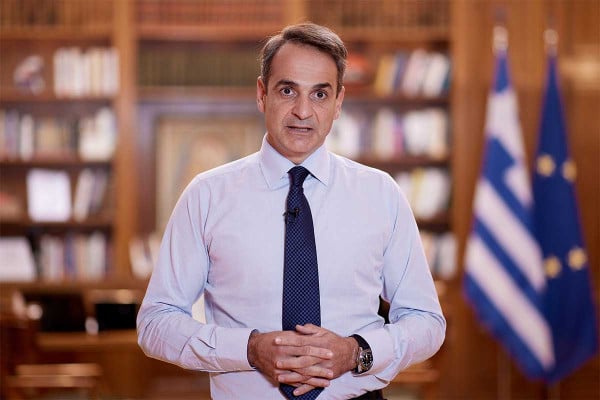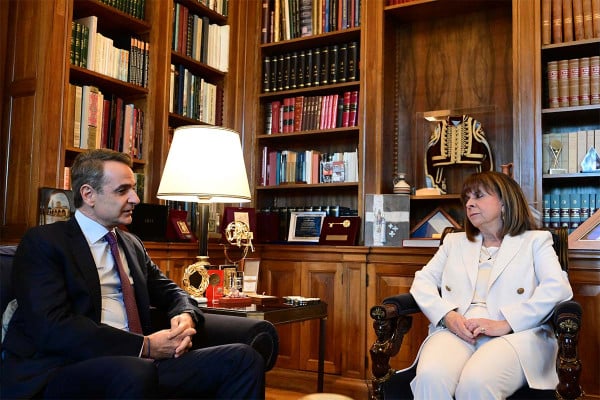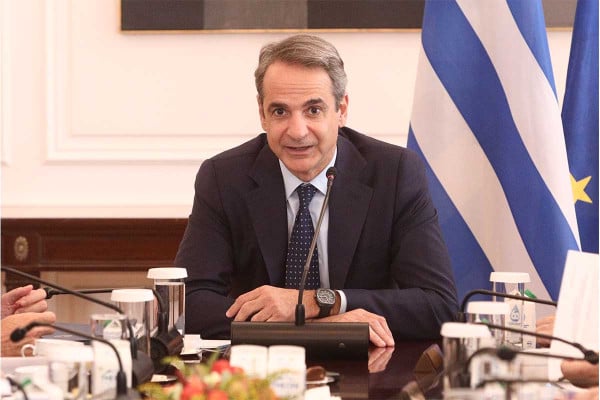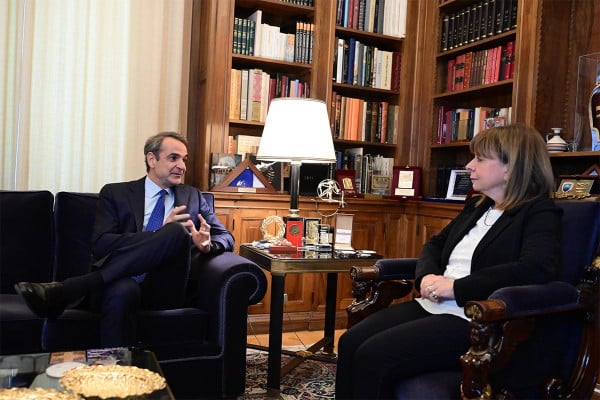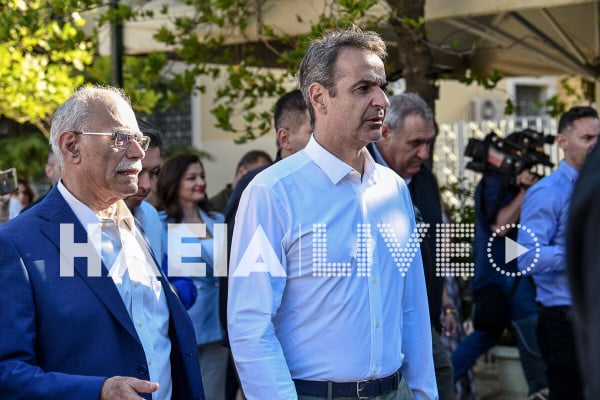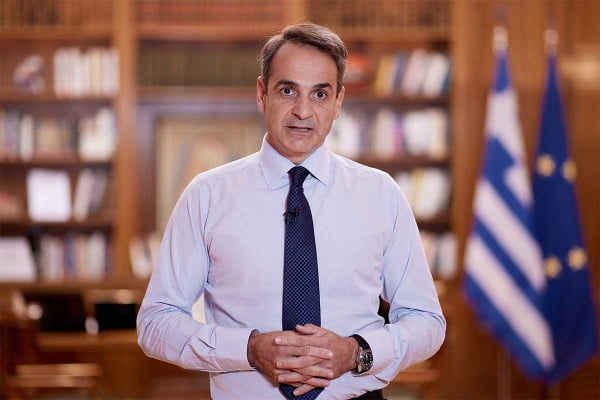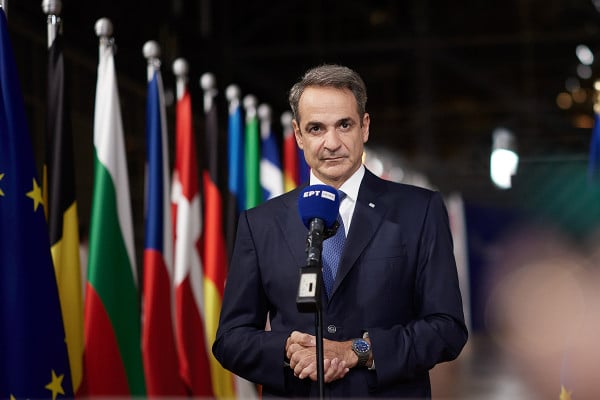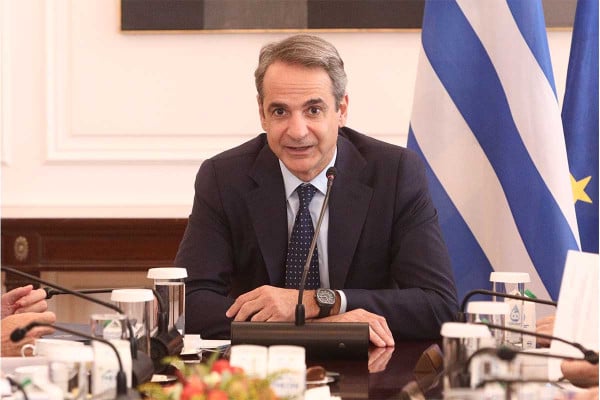Ο πρωθυπουργός κατά τις κοινές δηλώσεις των ηγετών των χωρών του νότου, έστειλε σαφές μήνυμα στην Τουρκία επισημαίνοντας ότι τουρκική προκλητικότητα αποτελεί ευρωτουρκικό πρόβλημα και όχι ένα θέμα ανάμεσα στην Ελλάδα και την Κύπρο. Αναλυτικά όσα αναφέρει η Διακήρυξη της 7ης Συνόδου των χωρών του Ευρωπαϊκού Νότου.
Σαφές μήνυμα στην Τουρκία έστειλε ο Αλέξης Τσίπρας από την Μάλτα. Κατά την 7η Σύνοδο των ηγετών των χωρών του νότου ο Έλληνας πρωθυπουργός σημείωσε ότι “η ΕΕ πρέπει να πάρει συγκεκριμένα μέτρα αν η Τουρκία δεν σταματήσει την παράνομη συμπεριφορά της. Βασικός πυρήνας της δικής μας αντίληψης είναι ο σεβασμός του διεθνούς δικαίου και όποιος δεν το σέβεται θα αντιμετωπίζει συνέπειες” και υπογράμμισε ότι υπήρξε συμφωνία πως η Ευρώπη έχει έναν ισχυρό ρόλο να διαδραματίσει δίνοντας σαφή μηνύματα.
Παράλληλα ανέφερε ότι όλοι οι ηγέτες εξέφρασαν την πλήρη στήριξή τους στον Νίκο Αναστασιάδη και συμφώνησαν ότι οι προκλήσεις της Τουρκίας “δεν αποτελούν διμερές ζήτημα ανάμεσα στην Κύπρο και την Τουρκία ούτε τα ζητήματα που προκύπτουν ανάμεσα στην Ελλάδα και την Τουρκία είναι διμερή”.

Θύμισε επίσης ότι η πρωτοβουλία που ξεκίνησε στην Αθήνα παίρνει χαρακτήρα μονιμότητας και αποδεικνύει ότι “οι χώρες του Ευρωπαϊκού Νότου έχουν κοινά συμφέροντα και εμπειρίες”.

Νίκος Αναστασιάδης
Για τις εξελίξεις στην Κυπριακή ΑΟΖ ενημέρωσε από την πλευρά του ο πρόεδρος της Κυπριακής Δημοκρατίας.
Στις δηλώσεις του, ο κ. Αναστασιάδης, επανέλαβε την αποφασιστικότητα του να συμβάλλει για τη δημιουργία συνθηκών ώστε να βρεθεί μια μόνιμη και λειτουργική λύση στο Κυπριακό, ενώ ευχαρίστησε τους άλλους ηγέτες για την υποστήριξη τους στην Κυπριακή Δημοκρατία.
Τζουζέπε Κόντε
Την πλήρη υποστήριξη του στην Κύπρο, διαμηνύοντας πως έχει απόλυτο δικαίωμα να εφαρμόσει τα κυριαρχικά της δικαιώματα στην κυπριακή ΑΟΖ, εξέφρασε και ο Ιταλός πρωθυπουργός, Τζουζέπε Κόντε. «Η Κύπρος έχει απόλυτο δικαίωμα να εφαρμόσει τα κυριαρχικά της δικαιώματα, δηλαδή να προχωρήσει σε οποιαδήποτε δραστηριότητες θεωρεί ότι είναι προς όφελος της χώρας της στην κυπριακή ΑΟΖ. Αυτό είναι κάτι που συζητήσαμε και στη συνάντηση και εκφράζουμε την πλήρη υποστήριξή μας στην Κύπρο» ανέφερε χαρακτηριστικά ο Ιταλός πρωθυπουργός.
Πέδρο Σάντσεθ
Θα ήθελα να εκφράσω πλήρως την αλληλεγγύη της ισπανικής κυβέρνησης στον κυπριακό λαό και στην κυπριακή κυβέρνηση για τις γεωτρήσεις της Τουρκίας, δήλωσε και ο πρωθυπουργός της Ισπανίας Πέδρο Σάντσεθ.
Η Διακήρυξη
Σημειώνεται ότι η Διακήρυξη της 7ης Συνόδου των χωρών του Ευρωπαϊκού Νότου επιβεβαιώνει καταρχήν τη μεγάλη επιτυχία της πρωτοβουλίας που ξεκίνησε η Ελλάδα πριν από 3 χρόνια και υπογραμμίζει με σαφή τρόπο την καταδίκη των παράνομων ενεργειών της Τουρκίας σε Ανατολική Μεσόγειο και Αιγαίο.
Μάλιστα οι 7 καλούν την ΕΕ να εξετάσει κατάλληλα μέτρα σε πλήρη αλληλεγγύη με την Κύπρο, εάν η Τουρκία δεν τερματίσει τις παράνομες ενέργειες στην κυπριακή ΑΟΖ, ενώ αναγνωρίζουν την ιστορική σημασία της Συμφωνίας των Πρεσπών και τη σημασία εφαρμογής της, καθώς θα ωφελήσει και την Ελλάδα και την ευρύτερη περιοχή. Επίσης γίνεται αναφορά για μια κοινωνική Ευρώπη, την κλιματική αλλαγή και την μεταρρύθμιση Ευρωζώνης.
Η διακήρυξη στα αγγλικά
eDRAFT
Summit of the Southern European Union Countries – Valletta, 14 June 2019
Valletta Declaration
- We, the Heads of State or Government of Malta, Cyprus, France, Italy, Greece, Portugal, and Spain, have convened in Valletta for the sixth Summit of the Southern European Union (EU) Countries.
- Following our last Summit in Nicosia, the Sibiu Informal Summit of 9 May 2019, and the Informal dinner of EU Heads of State or Government of 28 May 2019, we are unwavering in the belief that a united Europe is the way forward, particularly in an increasingly challenging global landscape. We are therefore dedicated to doing our utmost to fulfil the 10 commitments agreed on in the Sibiu Declaration. We also reiterate our conviction and commitment to uphold the fundamental principles and shared values, such as the rule of law, freedom, democracy, human rights and solidarity that underpin the EU. These values must also be mirrored in the Strategic Agenda 2019-2024.
- We echo the European Council President’s call for the EU’s leadership to reflect our ambitions for a strong EU and a fair balance in terms of geography, size of countries, gender and political affiliation. This is of importance so as to both reflect the spirit of the Treaties as well as the modernity and inclusiveness of the EU. We restate that in accordance with the Treaties, the European Council will fully exercise its role in the upcoming institutional appointments.
- We recall the European Council Article 50 Conclusions and Guidelines on the United Kingdom’s Withdrawal from the European Union, and remain committed to an orderly withdrawal of the United Kingdom. We are also intensifying our work on preparedness and contingency measures to be ready for all possible outcomes.
- In setting our common goals in the next EU Strategic Agenda, we should focus on finding concrete solutions to the expectations and concerns of European citizens. We should foster convergence and cohesion among Member States, thus contributing to a more competitive, socially inclusive and sustainable Europe that is adapted to the challenges of climate change, demography, and digitalisation. We are committed to strengthening Europe´s role as global actor; being more assertive and effective in projecting our common values and advancing our interests; whilst maintaining strong leadership and engaging with partners to strengthen the rules-based multilateral order.
- The Union must become a credible security provider for its citizens, in line with the level of ambition of the EU Global Strategy. We welcome progress to bolster European defence, with a view to enhancing the EU capacity to be a security provider, its strategic autonomy and its ability to cooperate with UN, NATO and other partners. In this context we also acknowledge the importance of the EU security and defence initiatives. With regard to operations, we acknowledge the ongoing discussions on the proposed off-budget European peace facility and EU command and control structures being swiftly operationalised.
- The Multiannual Financial Framework for 2021-2027 must provide the means to match our ambitions as the only way for the EU to tackle common challenges and finance political priorities. Without prejudice to the quality of the outcome, we are committed to do our utmost to conclude negotiations as soon as possible in 2019, and stand ready to assist the Finnish Presidency of the Council of the EU in its efforts. We attach particular importance to policies with clear deliverables that stimulate transition to a greener economy; and enhance convergence and solidarity between Member States, promoting security, sustainable growth and competitiveness. Whilst agreeing on the need to address both new and pressing challenges, including migration, we believe in sustaining the essential role of the two main investment policies, the Common Agricultural Policy and Cohesion Policy, with their proven added value and contribution to the EU’s sustainable development and competitiveness. To achieve all of that the MFF should be adequately financed. All rebates must be removed by 2021
- The euro area is today more resilient and better equipped to handle shocks. We remain fully committed to making progress on deepening the Economic and Monetary Union (EMU), by building on the outcome of the Euro Summit of 14 December 2018. Together we shall work to strengthen further the financial stability and the resilience of the EMU to economic shocks through the completion of the Banking Union, including the quick implementation of a fully-fledged European Deposit Insurance Scheme, and the Capital Markets Union. Achieving real convergence between Member States, through sustainable growth and investments, is the ultimate objective of an effective EMU. The creation of a budgetary instrument for convergence and competitiveness is a step in the right direction. We reaffirm our commitment to deliver a stabilisation function within the Euro area, which would ultimately contribute to a better functioning of the EU. The stabilisation function could target investment and job-creation. We shall continue to discuss how to improve the architecture of the EMU to ensure the prosperity of all Euro Area Member States.
- A fair EU is one which puts its social agenda at the forefront. We welcome the European Pillar of Social Rights concluded in December 2017, and call for its implementation across Member States. Europe must enhance its social dimension, empower and protect citizens, namely through equal opportunities and access to the labour market, fair working conditions and social protection and inclusion. Reinforcing the common tools to fight youth unemployment should be high on the EU’s agenda. We are committed to further promote gender equality, including through an ambitious gender-equality strategy. We call upon the incoming European Commission to prioritise LGBTIQ rights, building on the proposals in the joint non-paper on the future of the LGBTIQ list of actions signed by 19 Member States in December 2018.
- We shall strive to jointly tackle the effects of accelerating Climate Change in the Mediterranean basin, and intensify work on the EU's climate strategy, mindful of regional specificities, in order to implement the Paris Agreement objectives. We reaffirm our commitment to the objective of climate neutrality, which should be reached by 2050, taking into account different national specificities, and will strive to ensure the EU’s leading role in submitting an ambitious long-term strategy and updating its NDC by 2020. We are concerned about the proliferation of plastic pollution and the effect that it is having on the marine environment and beyond. We therefore welcome the adoption of a Directive on single-use plastics that will contribute to reduce the negative effects of plastic pollution in our seas. We underline the importance of continued EU support for international action towards promoting the conservation and sustainable use of oceans and their resources to strengthen international ocean governance. We reaffirm our commitment to continue supporting the EU's role as a leading global actor in implementing Agenda 2030 and the SDGs. The EU must demonstrate this leading role in the United Nations Climate Action Summit on 23 September 2019.
- A peaceful, stable, and prosperous Mediterranean region is a fundamental element for the future of Europe and is in the interest of the EU as a whole. In a context of diverse, multifaceted challenges across social, economic, political, security, and environmental dimensions, including the fight against terrorism in the Mediterranean and beyond, the EU must continue to be actively engaged in the region. To this end, it is a strategic priority to promote a renewed and operational partnership with the Southern Neighbourhood, building on convergent interests in the region, promoting dialogue, and converting challenges into opportunities, including through the work of the Union for the Mediterranean, and all multilateral efforts contributing to a positive pan-Mediterranean agenda based on human and sustainable development. It is our strong belief that common problems require common solutions in the spirit of co-ownership and the achievement of win-win solutions. Therefore, we commit to better coordinate in order to raise the political visibility and reinforce the effectiveness and impact of this unique role as a platform for regional cooperation, including with a stronger involvement in the EU Neighbourhood Policy.
We also look forward to the upcoming Sommet des Deux Rives to be held in Marseille on 23-24 June 2019, and welcome the positive momentum generated by this initiative.
We recall that the escalation of violence in Libya represents a threat to the stability of the country and the region, contributing to an increased terrorist threat. We call on all parties to immediately implement a ceasefire and to engage with the United Nations (UN) to ensure a full and comprehensive cessation of hostilities. We also reiterate that there is no military solution to the crisis, and urge all parties to agree on a cease-fire without preconditions, and to re-commit to the UN-facilitated political dialogue. Regional initiatives, including those developed through the trilateral cooperation schemes in the Eastern Mediterranean, the UfM, and the 5+5 Dialogue also have an important role towards enhancing regional collaboration, addressing the challenges of the region and reinforcing our collective efforts to promote peace, security, stability and prosperity.
- A prosperous Africa is key for the stability of the Mediterranean region and the European Union as a whole. We fully support the EU-Africa Alliance as a way to step up our partnership. We are committed to maximise the potential of the EU External Investment Plan to contribute to Africa’s socio-economic transformation, particularly through education, health, infrastructure, innovation, digitalisation and women empowerment.
In this context, we welcome the establishment of the African continental free trade area.
We welcome the deepening of the partnership between the European Union and Africa, and remain engaged in cooperating with our African partners to manage crisis and prevent conflicts, particularly in the Sahel and the Horn of Africa. We are also aware that stability is not only harnessed through defence and security instruments, but also through a commitment to sustainable investment and economic cooperation. We also support the EU-Africa Alliance on Sustainable Investment and Jobs, as well as the European External Investment Plan, and the cumulative contribution of innovation and digitalisation to sustainable economic development, and we look forward to the conclusion of new agreements between the EU and countries from Africa, the Caribbean and the Pacific-EU, successor to the Cotonou Agreement. Positive steps have already been taken through the signing of several agreements pertaining to providing closer trade relations, investment plans, funding in several areas and several financial operations.
- We are also aware that stability is not only harnessed through defence and security instruments, but also through a commitment to sustainable investment and economic cooperation. We welcome the 1st European Union-African Union Foreign Ministers’ Meeting that was held on 21-22 January 2019 in Brussels. It was an opportunity to take stock of the implementation of the outcome of the 5th AU-EU Summit (Abidjan, 29-30 November 2017), which marked a milestone in reshaping the partnership into an even stronger, mutually beneficial partnership among equals better adapted to a rapidly evolving global context.
- We share the concern about the challenges facing the European industry, and the need to strengthen it in the context of increasing global competition, ambitious policies on climate and environment, digitisation and protectionist or distortive policies globally. We support measures that are being considered to strengthen Europe's industrial and technological base. In line with the 2019 March European Council conclusions, we remain committed to adapt our European competition framework to new technological and global market developments. We also agree that measures should be taken to further support the European Innovation Council and to facilitate the implementation of Important Projects of Common European Interest, while ensuring a level playing field, as well as a regulatory environment and state-aid framework that are conducive to innovation. We believe that updates of our Competition and State Aid Regulations must also take into account the global competitive position of European industry while continuing to protect the Single Market and European Consumers. We look forward to the Commission´s report to identify how to fill gaps in EU law in order to address fully the distortive effects of foreign state ownership and state-aid financing in the Single Market. The EU must also safeguard its interests in light of unfair practices by third countries, making full use of trade defence instruments and its public procurement rules, as well as ensuring effective reciprocity for public procurement with third countries. We call for urgent resumption of discussions on the EU’s international procurement instrument.
- Southern Mediterranean States are still facing persistent migratory pressures, although progress has been made. Continuous efforts are needed towards a comprehensive approach on migration, including channels for legal migration, improved control of the EU’s external borders, enhanced external action and a reformed and harmonised common European asylum system that will guarantee effective implementation of the principle of solidarity and fair burden sharing between Member States. Efforts to break the smugglers’ business model need to be further enhanced, with the aim to also prevent tragic loss of life. We also remain committed to further cooperate with third countries inter alia in border management and in readmissions. Ultimately, migration challenges need to be tackled through a common migration policy properly financed in the next MFF. All vessels operating in the Mediterranean must respect the applicable international laws and not obstruct operations of the Libyan Coastguard. We need to step up work on the internal aspects (such as the “Dublin” reform and the protection of “Schengen”), namely through the reform of the Common European Asylum System with swift adoption of all the legislative proposals with a view to establishing a legislative framework based on shared responsibility and solidarity as a matter of priority for the next Commission. Together we continue to seek permanent and predictable solutions, which are now a matter of urgency.
- Third countries with the highest percentage of departure of migrants who subsequently enter the EU irregularly, face a specific challenge. The EU should provide them with a long-term, predictable and stable political and financial association framework.
We commend Morocco’s implementation of a comprehensive migration policy, including the respect for the rights of refugees and migrants, integration measures and the management of border flows. The forthcoming EU-Morocco Association Council must show EU’s commitment with Morocco and thus step up its cooperation through a new comprehensive partnership. We commend as well the enhanced cooperation of other Mediterranean third countries, like Tunisia, Egypt and Algeria, within existing migration and mobility dialogues with the EU.
- We commend the significant efforts of those countries that host and address the needs of Syrian refugees, notably Turkey, Jordan and Lebanon. The continued and non-discriminatory implementation of the EU-Turkey statement, which reduces irregular and dangerous crossings and saves lives in the Aegean Sea, is in the interest of both sides and remains crucial. At the same time, the full and effective implementation of the EU-Turkey readmission agreement and effective cooperation of Turkey on JHA issues vis-à-vis all EU Member States, including the Republic of Cyprus, remain essential. While acknowledging the fundamental role that the European Union Trust Fund for Africa has played so far, we also stress the need for adequate resources for migration-related activities within the EU Multiannual Financial Framework for 2021-2027.
- We are closely following the situation in Cyprus and, we reiterate our support to the efforts by the United Nations Good Offices Mission for the resumption of meaningful negotiations, leading to a viable comprehensive settlement of the Cyprus problem, in accordance with the relevant UNSC resolutions and in line with the EU acquis, values and principles. The solution must safeguard Cyprus’ sovereignty, independence and territorial integrity, without guarantees, rights of intervention and military presence of foreign troops. In this respect, we expect Turkey to demonstrate tangible commitment for a comprehensive settlement within the UN framework. It is of utmost importance that the EU remains actively involved in the negotiations upon their resumption and in the effort towards that end. The Republic of Cyprus is and will remain a member of the EU and therefore the settlement must ensure that Cyprus will remain a fully functional member of the Union, compliant with EU acquis.
- While recalling the Thessaloniki Agenda which sets forth the European perspective of the Western Balkans, as well as the General Affairs Council Conclusions of June 2018, we acknowledge this historic importance of the Prespa Agreement and stress the importance of its implementation, as it will benefit our broader region.
- We will work towards enhancing energy efficiency and the promotion of Renewable Energy Sources. We also reaffirm our commitment to the completion of our Energy Union, with particular reference to a fully integrated and interconnected European electricity and gas network, thus contributing to the EU’s strategic energy security policy through diversification of sources, suppliers and routes to ensure security of supply, sustainability and affordability of energy for all. This strategic objective must receive adequate financial support from the European Union.
- We recall the Energy Union’s strategy and its call for greater security of supply via diversification of sources, routes and suppliers of energy especially in the Eastern Mediterranean, and we reiterate our commitment to ensure the continued involvement of European Companies in the area. In this regard we recognise that the Western and Eastern Mediterranean region is a strategic corridor for gas supplies and electricity through infrastructures such as El Med (Italy-Tunisia interconnection) and projects that are under examination such as the EastMed Pipeline. This creates a demand for better interconnections among Member States, the Mediterranean and Atlantic regions. We remain committed towards a functioning internal energy market – a precondition of which is a well-connected energy network. In this regard we reiterate our call to ensure that no Member State remains isolated from the EU’s electricity and gas network.
- We reiterate our full support and solidarity with the Republic of Cyprus in exercising its sovereign rights to explore, exploit and develop its natural resources within its EEZ, in line with EU and international law. In line with previous Council and European Council Conclusions, we recall Turkey’s obligation to respect international law and good neighbourly relations. We express our deep regret that Turkey has not responded to the European Union’s repeated calls condemning Turkey’s illegal continued actions in the Eastern Mediterranean and Aegean Sea and express serious concern over actual or potential drilling activities within Cyprus’ EEZ. We ask the European Union to remain seized on the matter and, in case Turkey does not cease its illegal activities, to consider appropriate measures in full solidarity with Cyprus.
- We call on Turkey to fulfil its obligations under the negotiation framework including the full non-discriminatory implementation of the additional protocol to the association agreement towards all Member States. We reiterate that recognition of all Member States is essential. In this regard we reiterate our call on Turkey to normalise relations with Cyprus.
- We recognise the potential and challenges of EU Islands in the energy sector and the need to support tailor-made solutions. In this context, we recall previous Council Conclusions calling on the need to ensure that no Member State should remain isolated from the EU’s electricity and gas networks and the Valletta Declaration on Clean Energy for EU Islands with a perspective towards a long-term framework for replicable and scalable projects with funding. We also seek to further our regional cooperation on the promotion of alternative fuels, notably the use of LNG for power generation and shipping to improve the environmental performance of these sectors.
- We remain committed to contributing to a Union that can provide a better crisis and emergency support to its citizens. We will continue working towards the swift implementation of a Union Civil Protection Mechanism (RescEU) that will provide Member States with the means of dealing with disasters, including natural and other severe emergencies.
- We will continue to work on deepening the Single Market and ensuring it provides a solid underpinning for a more autonomous EU in a challenging global environment. In this respect, we remain committed to further cooperation in the digital field in the Southern Mediterranean region. We reaffirm our support to the commitments and ambition of the Ministerial Declaration on Distributed Ledger Technologies of 4 December 2018. This is to ensure that Distributed Ledger Technologies, along with other emerging technologies such as 5G, Artificial Intelligence and Internet of Things become strong contributors that will assist Southern European countries in transforming the way that we experience our digital ecosystem and expand it. We will keep looking more deeply into concrete cross-border projects.
- We hold the vision of a Southern Mediterranean region that fulfils its untapped potential and becomes a hotbed for the creation, development and roll-out of emerging technologies. We believe that our diversity and geographical proximity lend themselves to the deployment of citizen-centric technological innovations in areas such as health, mobility, public administration, education, environment, connected cars and autonomous driving. We will strive to make the Southern Mediterranean the leading European region for the development of such technologies whilst upholding ethical principles and commit to work together to ensure that the connectivity needs for such a vision are adequately catered for.
- We also reaffirm our commitment to continue deepening our sectoral cooperation in areas of mutual strategic interest such as high-performance computing, distributed ledger technologies, artificial intelligence and quantum. In this regard, we look with a positive light towards the first Southern Mediterranean Telecommunications Ministerial Conference to be held in Malta in 2019 as a model upon which, as Southern European countries, we can continue to strengthen our cooperation in important strategic areas not only among ourselves but also with the rest of the Mediterranean region.
- We reconfirm our commitment to act in coordination at all levels so as to actualise the goals of this declaration and we agree to hold the next summit in France.
Πηγή: News247.gr














